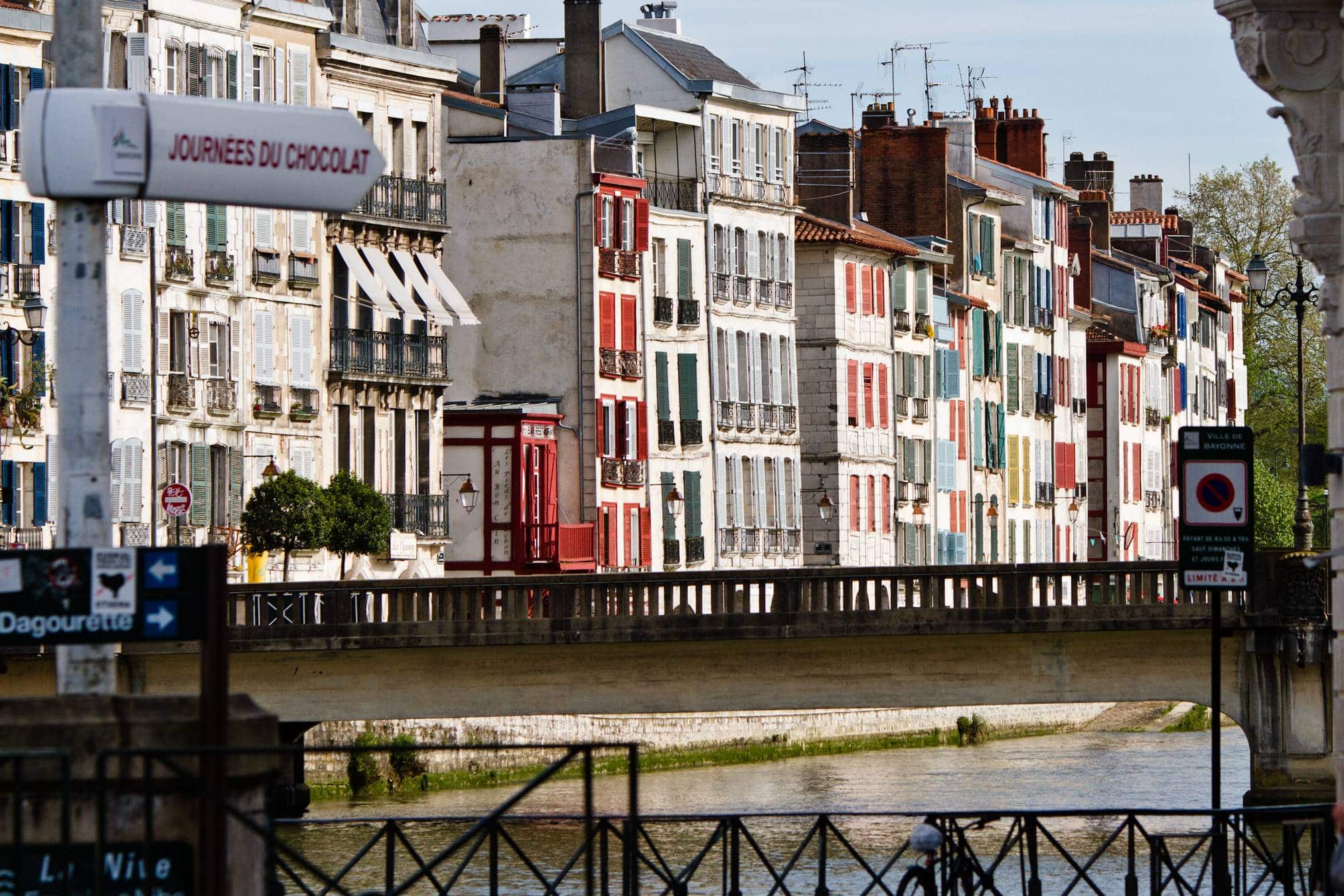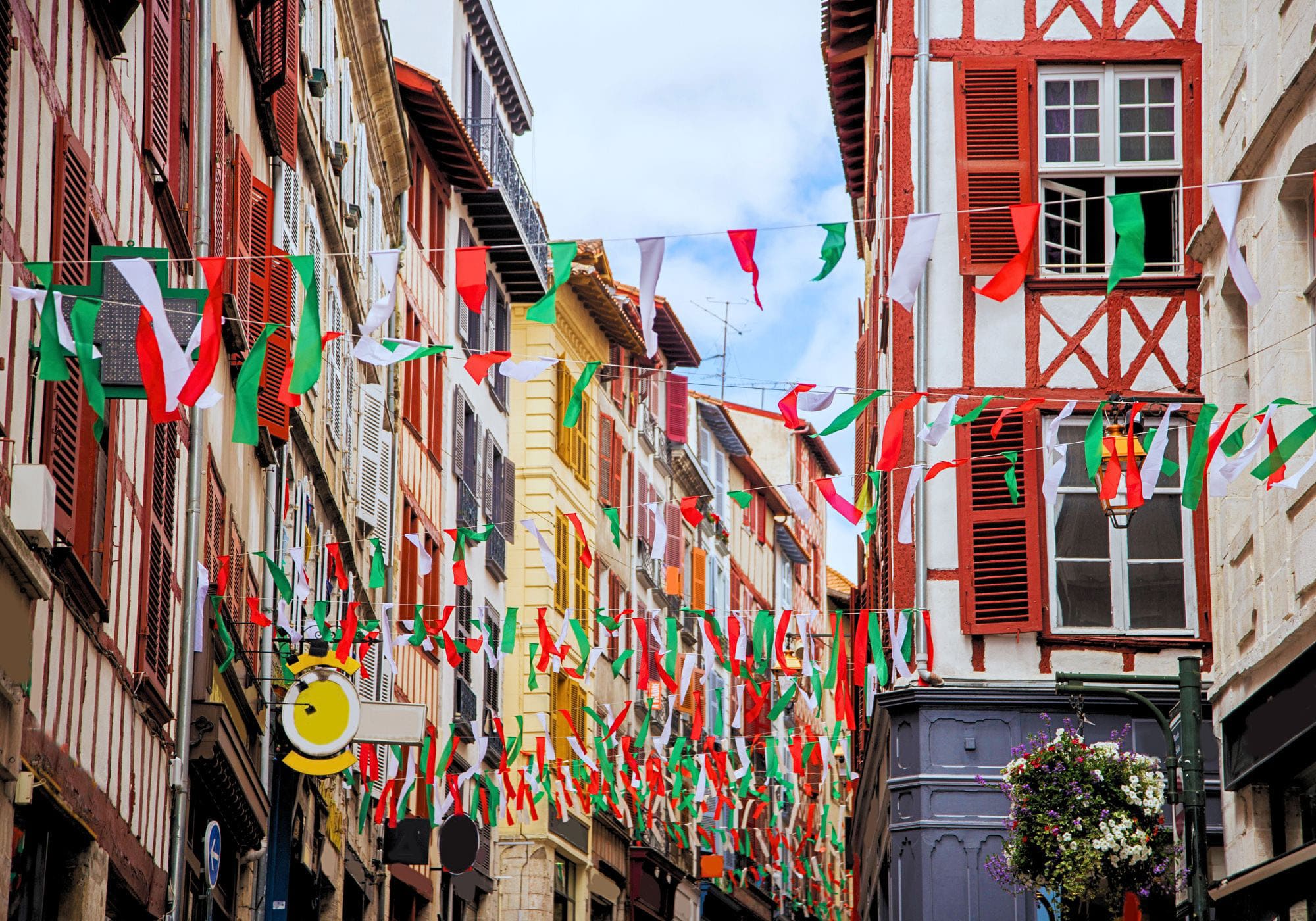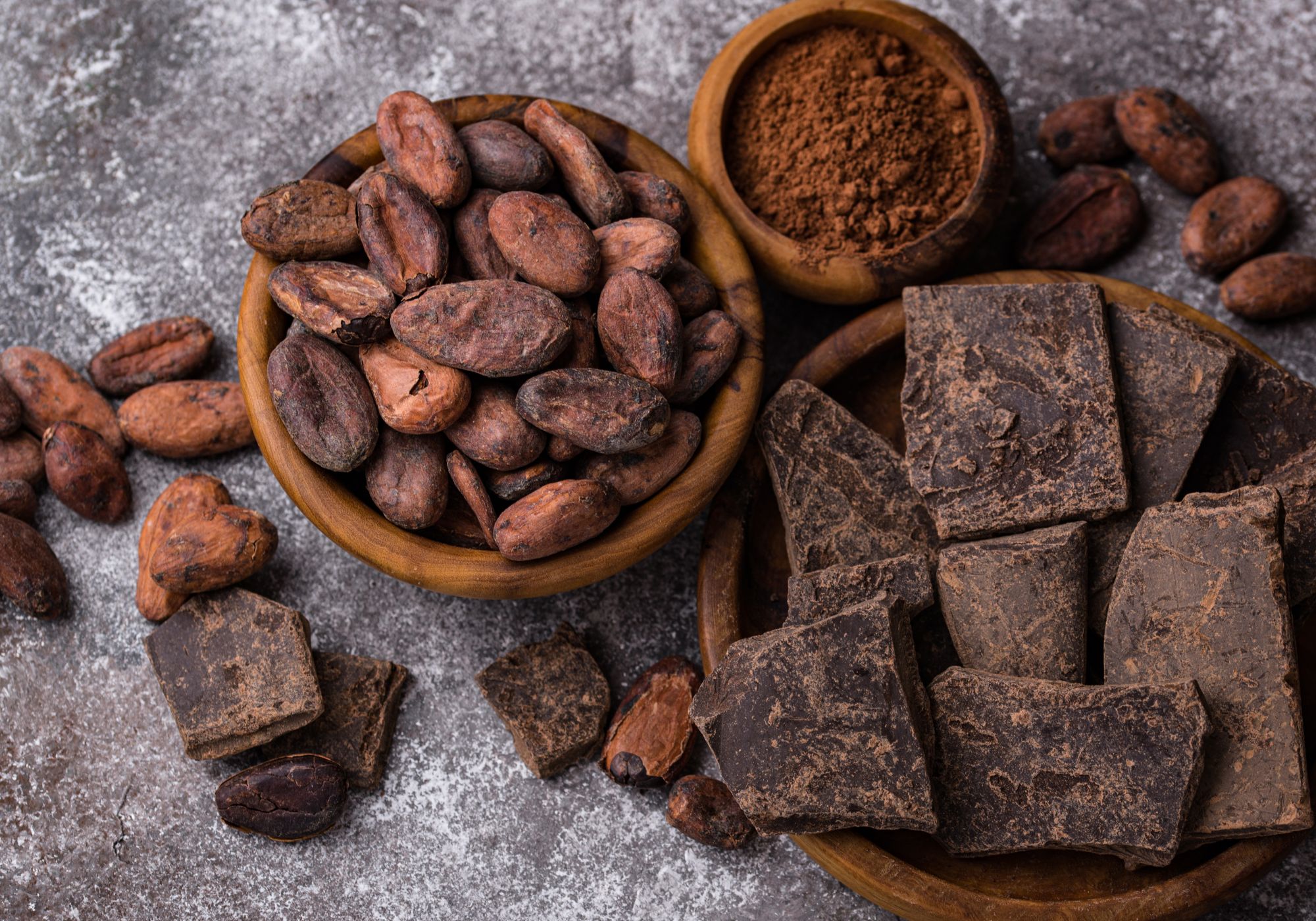Bayonne
Discover Bayonne
Capital of the French Basque Country, Bayonne is a picturesque, festive city with a remarkable architectural heritage. Dynamic in all seasons, it punctuates the year with eagerly-awaited events such as the chocolate festival, carnival, ham fair and, of course, the world-famous Fête de Bayonne: these July festivities are the 5th largest popular gathering in the world! From Wednesday to Sunday in the last week of July, days and nights are animated by festayres dressed all in white and red, to the rhythm of dances, songs and cow races, under the benevolent eye of King Léon.
Apart from these annual festivals, Bayonne is also a city of art and history not to be missed during a stay in the Basque Country. A former stronghold, Bayonne still boasts medieval ramparts, a citadel built by Vauban, and two castles: the Château vieux, a medieval citadel in the heart of the city, and the Château neuf, the work of Charles VII. Other architectural highlights include Sainte-Marie cathedral and its Gothic cloister, the episcopal palace, and the churches of Saint-Esprit and Saint-André. Bayonne’s Musée Basque is also a must-see, with 3000 m2 of exhibition space, retracing the history and culture of the Basque people through a rich collection of objects and works of art, animations and workshops. A trip to Bayonne can also be an opportunity to visit the Bonnat-Helleu art museum, the bullring, the Pierre Ibaialde chocolate workshop and salting workshop, or the Aubard ham museum. When you’re on a Bayonne camping holiday, enjoy the freshness of the botanical gardens, take a boat trip on the River Adour, or simply stroll through the city’s maze of pedestrian streets!

Top 10 things to do in Bayonne
Situated at the confluence of the rivers La Nive and Adour, the fortified city of Bayonne has been awarded the “Ville d’art et d’histoire” label thanks to its rich heritage and its commitment to preserving it. Discover the Basque city, its gourmet delights and festive events.
- Visit Cathédrale Saint-Marie and its cloister, built in Gothic style between the ⅩⅠⅠⅠth and ⅩⅤⅠth centuries, its two spires date from the ⅩⅨth century, and it is now a UNESCO World Heritage Site. It is surrounded by a beautiful botanical garden;
- treat yourself at the Atelier/ Musée du chocolat. Bayonne is the historic capital of this gourmet delicacy. Follow the tour to discover the preparation secrets of the master chocolatiers, learn to distinguish and name the gustatory subtleties of the cocoa bean and, at the end of the visit, enjoy a tasting session in our boutique;
- Bayonne’s 5-day festival attracts nearly 1.5 million visitors every summer, from the last Wednesday in July to the following Sunday. Corridas, Basque pelota, traditional music and fireworks punctuate the week. Dress code: white, red sash and scarf;
- Take a stroll along the river Nive, with its little bridges, old houses and emerald reflections of the river, the district has a false air of Venice. A change of scenery guaranteed;
- Attend a rugby match at the Jean Dauger stadium and enjoy the passionate atmosphere. When the galvanized supporters sing traditional songs, the emotion is at its peak;
- stroll through the Petit Bayonne district between the Nive and Adour rivers. Its narrow streets, popular atmosphere, tall houses and numerous bars and bodegas make it one of the city’s most festive spots;
- Fill up on goodies at Les Halles de Bayonne, preferring Saturdays when local producers present their own specialties in a colorful, fragrant atmosphere, to the sound of traditional Basque songs. A feast for the eyes, nose and ears;
- Come and have a drink at the Trinquet Saint-André to admire the Basque pelota players, a Bayonne institution you can’t afford to miss;
- visit the Saint-Esprit district on the right bank of the Adour, from where you can admire some of the best views of Bayonne. Rich in cultural diversity, this is the city’s up-and-coming district, with its art galleries, cinemas and modern bistros. Discover a different face of the city;
- discover the Bayonne Arena, the largest in the Basque Country. Built in 1893, they seat 10,000 and host bullfights and other traditional bullfighting events, as well as a variety of cultural events throughout the year.







